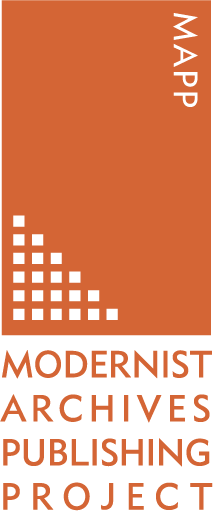As a project archivist working on MAPP, with this blog I hope to introduce myself, and to reveal some of the behind the scenes work taking place whilst we build this digital archive.
From the beginning I've been very excited by this project. The aspect that I admire most about it is that one of its aims is to break down barriers for its audience. For an archivist, access is vital. A digital archive has far less restriction placed upon it, whether due to the fact there are no geographical boundaries, or a permissions process for users to pass through. This has great implications for researchers and the public.
So, I have been busy digitising, creating workflows, making many spreadsheets, and writing individual catalogue descriptions for the material. I am very eager to upload the images and descriptions on the site, so they can be seen and shared as soon as possible. However, as fascinating as I find the letters and the material I am working with, and as keen as I am to upload them, as an archivist, an important part of my job is to make my way through some of the barriers that still persist. For instance, I need to order, catalogue, and seek copyright permission for most of the material before we can open it up to the public.
Behind the scenes : Image of the digitisation equipment at the University of Reading Special Collections
One of the greatest challenges is gaining permission, which involves tracing all the copyright holders for the material, not only including letters written by the authors, but by the people who worked for other publishing companies. This includes any letters written by employees of other businesses involved in the processes of publishing. It is an important step, but it does 'slow' the work down.
There is a very handy site called the 'WATCH file' (writers, artists and their copyright hoders): https://norman.hrc.utexas.edu/watch/ which significantly helps us with this part of the process. We also had to craft a 'take down' policy as many companies have now dissolved, and copyright holders are often unknown.
This 'slowing' down, or rather, more measured approach, brought up very interesting conversations with one of my supervisors; who introduced me to the concept of 'slow scholarship'. This is where both deliberation and thought will take the fore, and will win against hasty production. It had similarities to the processes involved in this work, where even though I was so eager to publish content online, following due care and taking the time was an equally essential step.
Overall, though I may feel like a 'slow' archivist, and it is taking time to get content online; I am looking forward to announcing it, and sharing my favourite highlights with you all very soon.





